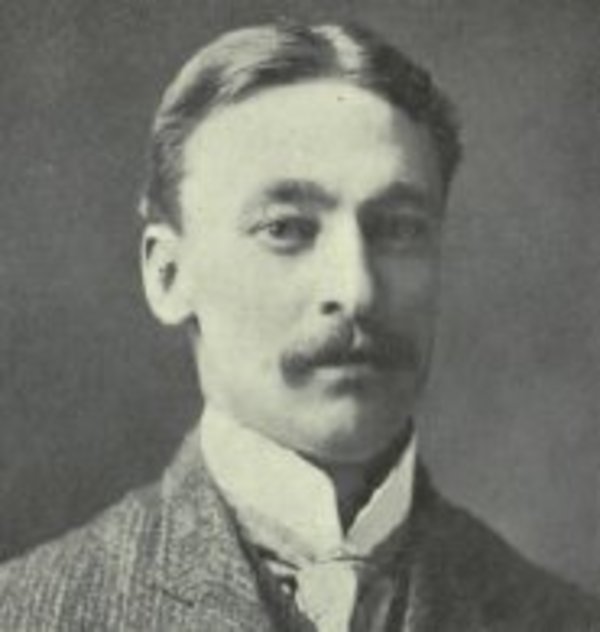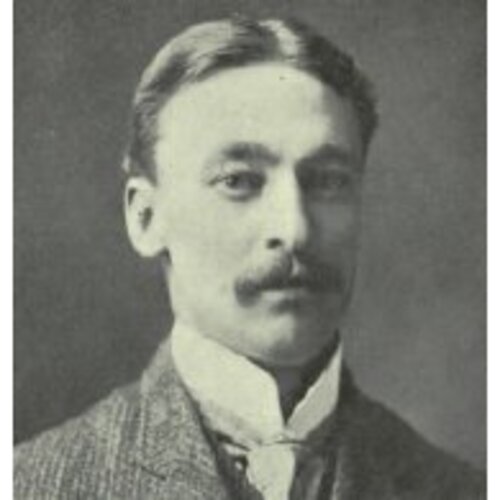
Source: Courtesy of Wikimedia Commons
McCARTHY, MAITLAND STEWART, lawyer, politician, and judge; b. 5 Feb. 1872 in Orangeville, Ont., son of Thomas Anthony Maitland McCarthy and Jennie Frances Stewart; m. 26 May 1900 Eva Florence Watson in Hamilton, Ont., and they had two sons and a daughter; d. 17 May 1930 in Montreal and was buried in Orangeville.
Born of Irish parents, Maitland McCarthy followed family members into a career in law; both his paternal grandfather and his uncle D’Alton McCarthy* were lawyers, and his father was a county court judge in Orangeville. He attended Trinity College School in Port Hope, Ont., and Trinity University in Toronto (ba 1893, ma 1895, llb 1896). Called to the bar in 1897, he practised in Sarnia, where he also became active in the local Conservative association. In September 1903 he moved to Calgary. Admitted to the bar of the North-West Territories in October, he soon formed a partnership with William Legh Walsh*, who had once worked in Orangeville.
McCarthy entered politics within a year of his arrival in Calgary. He was elected to the House of Commons for Calgary in 1904 and again in 1908 but he did not run in 1911. A major speaker in the house, he was noted for his constant attendance and attention to details in legislation. During the Conservatives’ attack in 1905 on the education sections of the Autonomy Bills, for the creation of the provinces of Alberta and Saskatchewan, McCarthy “treated the constitutional question with penetrating subtlety,” in the estimate of one historian. In February 1909 he was offered the leadership of the Conservatives in Alberta but declined.
After leaving parliament, McCarthy joined the Edmonton law firm of Eddinton and Hanna. He became one of the leading members of the Edmonton Bar Association, and revelled in its social affairs. Named kc on 19 March 1913, he was appointed to the Supreme Court of Alberta on 11 July 1914 and to its newly formed trial division on 15 Sept. 1921.
On the bench, McCarthy was regarded as a wise observer of human action. He spoke slowly, with a sense of humour; a generalist, he gave more weight to common sense than to legal technicality. According to one associate, he became a heavy drinker and could forget his legal training; another believed he could have been one of the most brilliant legal minds of his time. Although he did not write many judgements that furthered the jurisprudence of the court, he authored important precedents in such areas as the extent of contributory negligence in personal accidents, corporate negligence, and the rules of evidence. He valued precise judicial writing and did not hesitate to dissent. Several of his major decisions involved the Canadian Pacific and Grand Trunk railways. His most noteworthy judgement was The King v. Wilson (1919), where he overturned a decision for criminal misconduct against an automobile driver, and narrowed the parameters of personal liability for drivers encountering cyclists and pedestrians on the roadways.
Throughout his legal career McCarthy was active in outdoor sports, the Anglican church, and his community. He was a governor of Trinity College School and Western Canada College in Calgary, a chairman of the Alcoholics Anonymous Association of Alberta and the Amateur Athletic Association for Alberta, and a member of the Central Olympic Committee in 1908. He held memberships too in the Calgary and Ranchmen’s clubs and the Rideau Club in Ottawa.
Maitland McCarthy retired from the bench because of health problems on 3 May 1926. He died in Montreal four years later while on vacation.
[Biographical information about Maitland Stewart McCarthy can be found in Canadian men and women of the time (Morgan; 1912), Canadian directory of parl. (Johnson), Canadian who’s who, 1910, and Who’s who and why, 1917/18. Obituaries are in the Calgary Herald and the Edmonton Journal, both on 19 May 1930. There are no extant family manuscripts or legal files.
There is a photograph and a short legal biography of McCarthy in L. [A.] Knafla and Richard Klumpenhouwer, Lords of the western bench: a biographical history of the supreme and district courts of Alberta, 1876–1990 (Calgary, 1997), 114–15. McCarthy’s written judgements can be found from time to time in the Alberta Law Reports (Toronto), Western Law Reporter (Toronto), and Western Weekly Reports (Calgary) for 1914 to 1925. Judgements by McCarthy are also recorded in the civil trial books at the PAA, GR1979.266. Contemporary opinions are expressed in interviews of John Edward Annand Macleod and George Wilbert Skene, on tape at the GA, M 3983. l.a.k.]
AO, RG 80-5-0-286, no.17593. Edmonton Journal, 28 May 1930. CPG, 1905. M. R. Lupul, The Roman Catholic Church and the North-West school question: a study in church-state relations in western Canada, 1875–1905 (Toronto, 1974).
Cite This Article
Louis A. Knafla, “McCARTHY, MAITLAND STEWART,” in Dictionary of Canadian Biography, vol. 15, University of Toronto/Université Laval, 2003–, accessed April 29, 2025, https://www.biographi.ca/en/bio/mccarthy_maitland_stewart_15E.html.
The citation above shows the format for footnotes and endnotes according to the Chicago manual of style (16th edition). Information to be used in other citation formats:
| Permalink: | https://www.biographi.ca/en/bio/mccarthy_maitland_stewart_15E.html |
| Author of Article: | Louis A. Knafla |
| Title of Article: | McCARTHY, MAITLAND STEWART |
| Publication Name: | Dictionary of Canadian Biography, vol. 15 |
| Publisher: | University of Toronto/Université Laval |
| Year of revision: | 2005 |
| Access Date: | April 29, 2025 |



